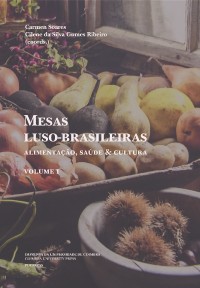Please use this identifier to cite or link to this item:
https://hdl.handle.net/10316.2/45229| DC Field | Value | Language |
|---|---|---|
| dc.contributor.author | Nadler, Wanessa Asfora | |
| dc.date.accessioned | 2019-01-28T15:15:35Z | |
| dc.date.accessioned | 2020-09-04T21:50:07Z | - |
| dc.date.available | 2019-01-28T15:15:35Z | |
| dc.date.available | 2020-09-04T21:50:07Z | - |
| dc.date.issued | 2018 | - |
| dc.identifier.isbn | 978-989-26-1718-3 | |
| dc.identifier.isbn | 978-989-26-1721-3 (PDF) | |
| dc.identifier.issn | 2183-6523 | |
| dc.identifier.uri | https://hdl.handle.net/10316.2/45229 | - |
| dc.description.abstract | The cookbook attributed to Apicius, traditionally known as De re coquinaria, is probably the best known text of all historical cookbooks. However, and despite its celebrity status, a variety of details concerning the copies that were made in different contexts of production, circulation and consumption still require further attention from historians. This paper is centered in one specific moment of the history of the Apician texts, the Renaissance. It presents their manuscript tradition and, based on the case study of three Florentine manuscripts, suggests connections between the content of the cookbook and the agenda of a particular group of Florentine humanists by the last decade of the 15th century. | eng |
| dc.description.abstract | O livro de cozinha de Apício, comumente chamado De re coquinaria, é muito provavelmente o mais famoso dos textos de cozinha que nos herdou a Antiguidade Latina. No entanto, apesar de tal celebridade, aspetos relacionados às particularidades de seus vários contextos de produção, redes de circulação e consumo permanecem objeto de pouca atenção da parte dos historiadores. Este artigo concentra-se em um momento específico da história dos textos apicianos, o Renascimento. Apresenta sua tradição manuscrita e, a partir do estudo de caso de três manuscritos fiorentinos, sugere conexões entre o conteúdo apiciano e a agenda de interesses de um grupo de humanistas fiorentinos do final do século XV. | por |
| dc.language.iso | por | - |
| dc.publisher | Imprensa da Universidade de Coimbra | por |
| dc.relation.ispartof | http://hdl.handle.net/10316.2/45206 | por |
| dc.rights | open access | - |
| dc.subject | Apicius | eng |
| dc.subject | Renaissance | eng |
| dc.subject | food | eng |
| dc.subject | Medicine | eng |
| dc.subject | cookbooks | eng |
| dc.subject | manuscripts | eng |
| dc.subject | Apício | por |
| dc.subject | Renascimento | por |
| dc.subject | alimentação | por |
| dc.subject | Medicina | por |
| dc.subject | livro de receitas | por |
| dc.subject | manuscritos | por |
| dc.title | Apício como opus medicinale na Itália do Século XV: estudo de caso a partir de três manuscritos fiorentinos | por |
| dc.title.alternative | Apicius as opus medicinale in 15th-Century Italy: case study of three Florentine manuscripts | eng |
| dc.type | bookPart | por |
| uc.publication.firstPage | 37 | - |
| uc.publication.lastPage | 59 | - |
| uc.publication.location | Coimbra | por |
| dc.identifier.doi | 10.14195/978-989-26-1721-3_2 | - |
| uc.publication.digCollection | PB | por |
| uc.publication.orderno | 2 | - |
| uc.publication.area | Artes e Humanidades | por |
| uc.publication.bookTitle | Mesas luso-brasileiras: alimentação, saúde & cultura. vol. I | - |
| uc.publication.manifest | https://dl.uc.pt/json/iiif/10316.2/45229/200564/manifest?manifest=/json/iiif/10316.2/45229/200564/manifest | - |
| uc.publication.thumbnail | https://dl.uc.pt/retrieve/11010275 | - |
| uc.publication.parentItemId | 55086 | - |
| uc.itemId | 68117 | - |
| item.fulltext | With Fulltext | - |
| item.grantfulltext | open | - |
| Appears in Collections: | Mesas luso-brasileiras: alimentação, saúde & cultura. vol. I | |
Files in This Item:
| File | Description | Size | Format | |
|---|---|---|---|---|
| apicio_como_opus_medicinale_na_italia.pdf | 1.64 MB | Adobe PDF |  |
Items in DSpace are protected by copyright, with all rights reserved, unless otherwise indicated.
